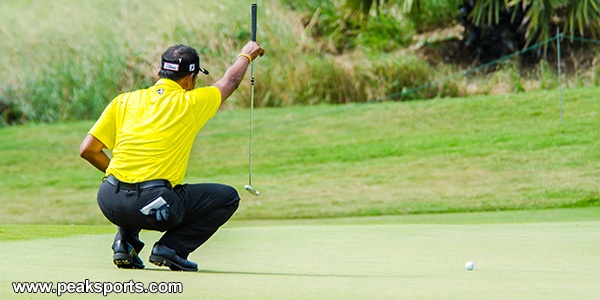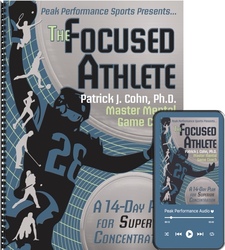
Mental Rehearsal Tips for Athletes
How many times have you imagined failing, making mistakes, or losing in a competition?
How many times have you visualized performing at your peak, succeeding, or achieving a personal best in a competition?
Chances are you see images of failing more often than succeeding. Negative images seem to flow easily and freely into your mind.
Negative internal images are accompanied by negative self-talk and unproductive emotions, intensifying those images and bringing about the results you fear might happen.
Negative self-fulfilling prophecies occur when you talk yourself into negative outcomes. The negative images you see feel real. The negative emotions are intense.
For example, in baseball… You can vividly see yourself in the batter’s box with the bases loaded in the ninth inning of a tied game. You can feel your shoulders tighten.
You see your parents in the stands as they nervously look on. You can feel the pressure and you see being blown away by a baseball straight down the heart of the plate for strike three. You feel the disappointment of your teammates as you head back to the dugout. The frustration feels real.
In basketball… You feel the nerves heading into the fourth quarter of a playoff basketball game. You vividly see yourself on the foul line with the opposing fans frantically waving their arms and yelling, “MISS!” You can feel your heart pounding and the sweat pouring off your forehead.
You see yourself hitting the front end of the rim and missing the first foul shot with your team trailing by two.
These strong images set you up for failure.
But you can set yourself up for success by actively producing positive images through visualization.
Taking an active role in consciously forming successful images can lead to a positive self-fulfilling prophecy.
Visualization is seeing the specific images of a successful outcome (seeing the base hit that scores the winning run or the ball swishing through the hoop to give your team the lead).
Visualization is actively feeling positive emotions (confidence, calm and joy) throughout the imaged experience.
Visualization is actively creating the full successful experience using all your senses.
Visualization is experiencing, in vivid detail, what you want to happen and how you want to feel.
In an interview, 21-time NCAA All-American swimmer Erika Brown espoused the benefits of visualization and its contribution to her success.
BROWN: “In practice we do a lot of video work and I love just looking at that, comparing it to other people, comparing it to my other swims and then using that to visualize for my races. I definitely use visualization before anytime that I race and just in life. I think it’s important if you set goals and you want to achieve something, you have to see yourself there.”
When you visualize, you imprint those images in your mind. Visualization is like you are training twice, once in physical practice and once in mental practice.
Visualization gives you the boost in confidence that you have the ability to reproduce those successful images.
How to Visualize Successful Competitive Performances
The key for making visualization a successful positive experience is to include all the senses:
* What would you see?
* What would your body feel like as you performed in the competition?
* What would you smell and taste?
* What sounds would you hear during the competition?
* What emotions would you experience?
Visualize within your current skill level. Don’t try to visualize something that you can’t complete successfully in practice at least 7 of 10 times.
Related Articles
- How to Improve Visualization in Sports
- Sports Visualization: The Secret Weapon of Athletes
- Why Relaxation and Visualization Doesn’t Work for Athletes
*Subscribe to The Sports Psychology Podcast on iTunes
*Subscribe to The Sports Psychology Podcast on Spotify
Download a free sports psychology report to improve your mental game!
Learn more about our one-on-one mental game coaching.
The Focused Athlete

It’s probably no secret that you have many opportunities to become distracted in sports. Athletes are bombarded with both internal and external distractions everyday in practice and competition. Focused athletes are able to get the most from their skills because they are more efficient with practice and more concentrated in competition. Athletes who lack focus let distractions run wild through their mind and don’t know how to adjust or refocus.
The Focused Athlete was developed for any level coach, parent, or junior to professional athlete who wants to improve performance and gain a competitive edge. It does not matter if you are a fledgling junior athlete; or a seasoned professional, plagued with distractions; or you just wanting to learn how to improve concentration…
“The Focused Athlete” is a complete system to teach you how to focus like a champion and harness the power of a zone focus every time you step on the playing field, court, track, or course in practice and games!
